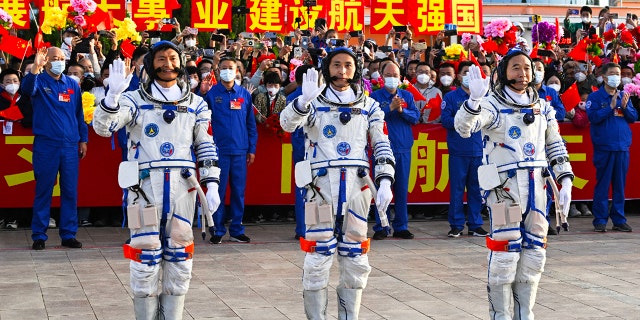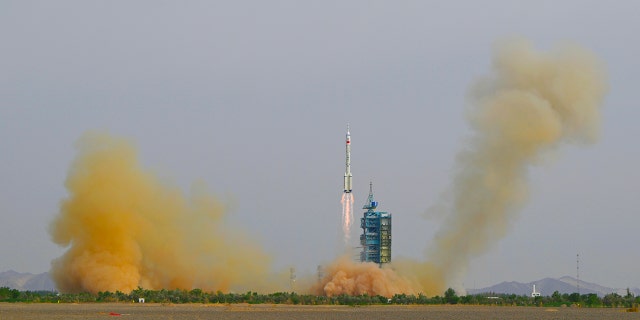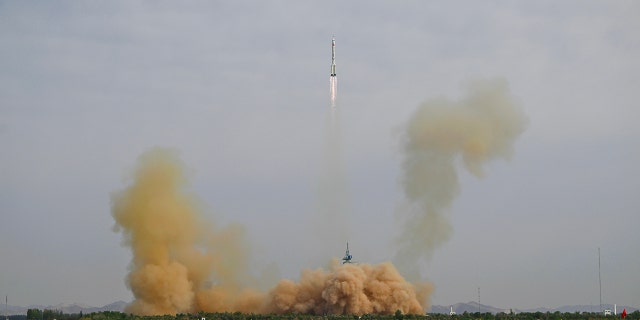China has sent three astronauts, including its first civilian, into orbit as the country prepares for a space race with the United States, Chinese authorities said.
According to the Wall Street Journal, Tuesday’s launch sent veteran astronaut Jing Haipeng on his fourth space mission. He was accompanied by first-time spaceflight engineer Zhu Yangzhu and payload specialist Gui Haichao, who is also a professor at Beijing’s Beihang University.
“We have a 20-year age gap, which makes this team intergenerational,” Jing said on Monday.
The astronauts will serve as the new crew for China’s Tiangong space station, as both the United States and China have announced plans to send astronauts to the moon as early as 2025 and 2030, respectively.
CHINA WILL LAND ASTRONAUTS ON THE MOON BEFORE 2030, OFFICIALS SAY

Chinese astronauts Gui Haichao, Zhu Yangzhu and Jing Haipeng from the Shenzhou-16 manned space mission attend a farewell ceremony at the Jiuquan Satellite Launch Center. (VCG/VCG via Getty Images)
The Shenzhou-16 spacecraft launched Tuesday morning from northern China’s Gobi Desert en route to the Tiangong Space Station, a journey of more than six hours.
The newly arrived crew will conduct spacewalks, send and receive cargo and other spacecraft, and conduct science experiments during their five-month mission, The Wall Street Journal reported.
The launch showcases China’s space capabilities in an increasingly competitive stance against the United States
CHINA’S SPACE OPERATION POSES ‘INCREDIBLE THREAT’, US MUST ADAPT, SPACE FORCE GENERAL SAYS

A Long March-2F carrier rocket carrying the Shenzhou-16 spacecraft with three astronauts on board takes off from the Jiuquan Satellite Launch Center. (VCG/VCG via Getty Images)
Chinese leader Xi Jinping said “the space dream is an important part of the dream of making China stronger,” according to the report.
Liu Bojian, a research assistant at the National University of Singapore who studies China’s activities in space, said the inclusion of a civilian in this trip highlights that Beijing plans to open up space travel to the private sector.
“China is trying to ensure that in the next two decades it will have enough well-trained astronauts, both experienced and young, to prepare for even bigger missions, such as landing on the moon and even Mars,” Liu said. through the WSJ.

A Long March-2F carrier rocket carrying the Shenzhou-16 spacecraft with three astronauts on board takes off from the Jiuquan Satellite Launch Center May 30, 2023 in Jiuquan, China’s Gansu Province. (VCG/VCG via Getty Images)
CLICK HERE TO GET THE FOX NEWS APP
Both China and the US see space as the next frontier, and expertise in intergalactic travel would lead to competitive advantage.
In March, the White House requested a $30 billion annual budget for the Space Force, an increase from the previous year.
